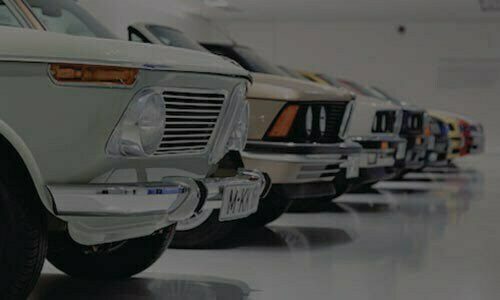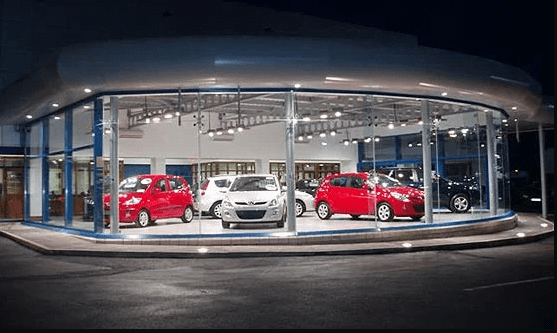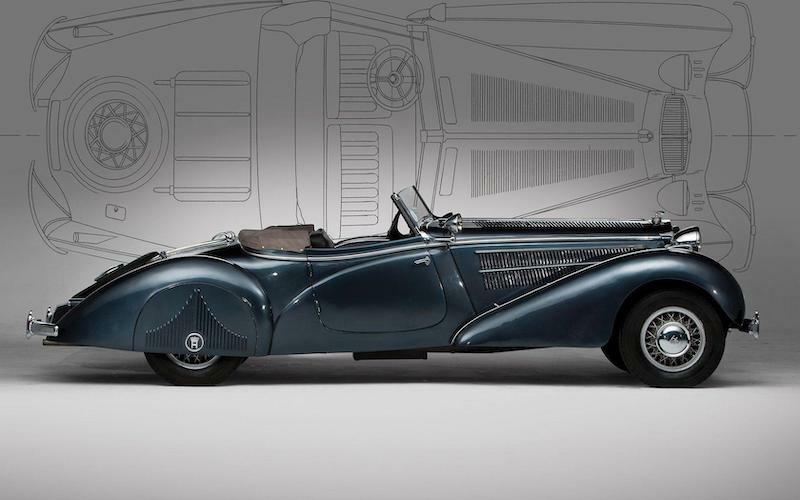11 Things You Need To Know About Classic Car Auctions
Wondering About Buying at Classic Car Auctions? Here’s The Information You Need
GAUK Motors Publish Ground-Breaking Classic Car Auctions Guide
Here’s everything you need to know about buying and selling classic cars at auction … Read On!
If you’re looking for upcoming classic car auctions then the good news is that there’s a thriving scene out there.
How do I buy at Classic Car Auctions online?
Classic car auctions are an invaluable way to buy a potential investment. These sales are where the traders and collectors go and if you do your homework and can keep a cool head under pressure, they can be a thoroughly enjoyable experience. They even make for an interesting day out with the most beautiful vintage and classic vehicles presented to perfection. If you’re new to the ‘secretive’ world of classic car auctions, you may be wondering just what you need in order to get into this marketplace.
Classics are sold through a string of auction houses across the UK. With the recent Pandemic there has been a lot of disruption to the operations and most auctioneers have invested heavily in online car sales platforms.
Selling cars and motorbikes, several thousand vehicles a year go through these websites.
Here’s all the information you need:
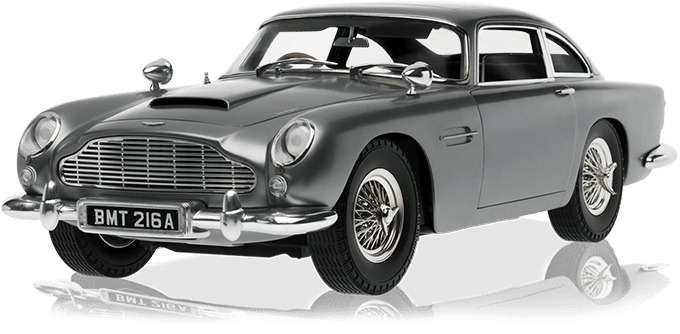
13 Classic Car Auctions Near Me
- Silverstone Classic Car Auctions
- Bonhams Classic Car Auctions
- Salon Privé
- Sotherby’s RM Auctions
- Historics at Goodwood
- Brightwells Classics
- Hobbs Parker
- Classic Car Auctions
- Mathewsons Classic Car Auctions
- H&H Classics
- Barons
- South Western Vehicle Auctions
- Charterhouse Classic and Vintage Vehicle Sales
5 IMPORTANT Things to Consider at Forthcoming Classic Car Auctions
Do your homework: Know what you want and have a good idea of what the car is worth.
Don’t rush: Arrive in good time and look around. Get a catalogue and examine the stock on offer.
Check the car: It is up to you to check the car’s overall exterior visible condition.
Budget: Set a limit on what you are prepared to pay. Don’t go over it in the heat of the moment and remember you will have a buyer’s fee.
Flexibility: Don’t get too possessive about a particular vehicle.If you miss your first choice, go and look again or come back another day.
CHECK OUT THE GAUK MOTORS CLASSIC CAR BUYERS GUIDE
How To Avoid A Disaster When Buying Your Next Classic Car:
- Ringers – Cars with a new identity
- Cut and Shut – Cars that are actually two different vehicles welded together
- Clockers – Cars that have traveled many more miles than is recorded on the dashboard
- Clones – Cars that carry the copied licence plates of a similar car
- Accident Damaged – Cars that have been in bad accident then ‘bodged’ and resold
- Death Traps – There are many criminals out there willing to put YOUR life at risk for a quick buck!!!
- Ex-Public Service Vehicles – Cars and vans that were once, Taxis, Ambulances, Police cars… and disguised. Believe us, they don’t make good second hand cars
- …AND MUCH, MUCH MORE
This report is about redressing the balance of power
If they want to fight dirty then you have two choices:
- Lay down and take it.
- Fight them on their terms.
It’s up to you!!!

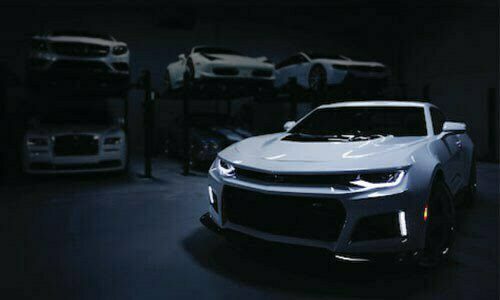
MORE VEHICLES
GAUK has developed powerful aggregation software that is monitored by real, live humans and only sources clean data.
AUCTIONS
Search ALL vehicles coming up for auction at the country’s leading sale rooms.
CLASSIFIEDS
Each day we gather up-to-the-minute information from multiple car classifieds websites across the internet
DEALERS
Search, save and compare car dealer vehicles across the entire UK.
What Makes a Classic Car, and What Determines It’s Price?
Classics are held in higher regard than other cars, usually standing out from the traffic. While most used cars lose value over time, often classic’s gain value after a few decades with some now worth millions!
Classic car investments have steadily outperformed most traditional investments over recent years. Nowadays even the humble Ford Escort in good condition can be worth in excess of £100,000 with once every day runarounds increasing in value.
Classics are models that car enthusiasts hold in higher regard than any others, usually with a design, peformance or character that make them stand out from the traffic. While most used cars depreciate, losing their value over time, (between 15% and 20% of its value each year! Source: Cars Direct) classic cars often gain value after a few decades, some now worth millions more than when new.
Take the modern classic, the Mercedes AMG SLS Black Series, for example. New, the SLS Black Series had an MSRP of $275,000. But today, searching GAUKmotors.co.uk and scouring the rest of the web, the cheapest Black Series we found was $350,000 with 38,000 miles on it. The most expensive example, with only 150 miles on it, wants a whopping $500,000!
Now, if you ask me, that’s a pretty tidy profit for whomever bought it new. Classics are worth so much because collectors around the world are outbidding one other just to get their mitts on these fossil-powered works of art. Some models start out as regular cars but develop a cult following years later, becoming a classic.
Well known examples include the Mini Cooper, Citroën 2CV, Fiat 500 etc. Collectors are known to hunt down anything missing from their collection, anywhere in the world. So, what else determines the price of classic cars for sale?
Production is Limited
Quite obvious, but the first is rarity. Simple economics dictates that when supply is low, the price shoots up. There’s less to go round so you have to pay more if you want to get your hands on it. Sometimes manufacturers make a point to release models with limited numbers, immediately establishing guaranteed rarity from the get go, essentially creating a future classic.
A good example of this is the Ferrari LaFerrari, where only 499 units were produced. Other times disasters, natural or man made, or simply age can be blamed for the reduction in number. Time passes, cars change hands and get modified, driven hard, neglected (often times all three) until eventually they end up in scrap yards. Some models are now over a hundred years old, most well known being the Ford Model T, another cult classic.
Others are decades old and already suffering from shortages. Japanese sports cars, for example the Nissan Skyline, Toyota Supra etc. suffer from being favourited by the younger enthusiasts and the drifting, street racing and tuning communities, meaning these cars are often modified and driven hard. This means that clean, stock examples of these cars are already drastically increasing in price. This leads us on to our next point.
Original Parts
Ideally, Collectors would like their classics to be stock, or at least as close to the original configuration as possible. Those who preserve these future classic vehicles directly from the factory can be sure to look forward to a nice tidy sum when they decide to let go of their prized possession. Of course, many things can prevent this from happening.
Breakdowns for one, so the original owner might already have replaced some parts to keep the car running and roadworthy. Perhaps they didn’t predict that their car would become a classic and have more value in the future, so treated it like any other run-about. Some savvy owners who are aware of the future implications non-original parts may have on the value of their classic attempt to keep their future classics pristine and original by obtaining the same original parts from scraps.
Driving Condition
Last but not least, we’ve got to remember that these are cars, not paintings, so collectors will definitely want to be able to drive them, even if they aren’t going too and they are going to be sat in their garage with their other 20 cars.
If the car is roadworthy, then they’ll be much more likely to give you a large amount of cash in exchange for it. This isn’t always possible though, some cars are simply no longer fit to be driven on modern roads, and some are too difficult to drive at all, but of course they still look stunning in a showroom! They can also always find a home in auto museums.
Are you interested in classic cars for sale? Then consult an expert before making a purchase! He might be able to help you find a future gem!
How to Bid Successfully at a Classic Car Auction in the UK
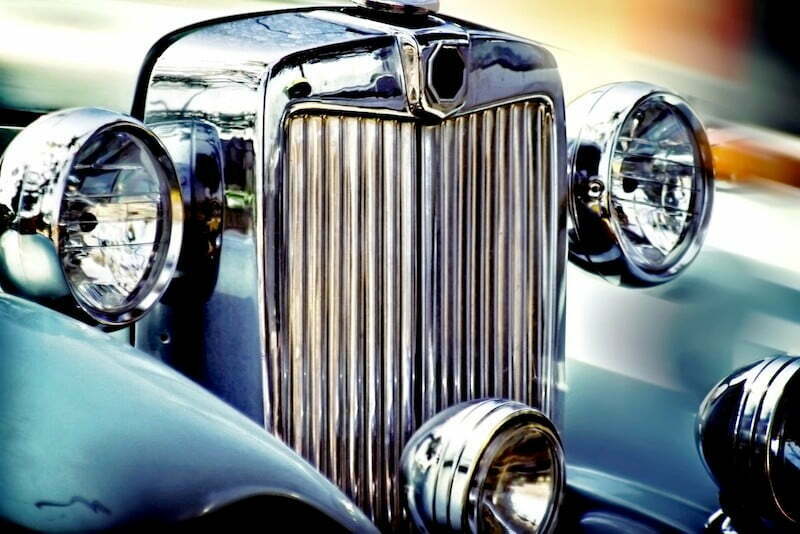
Put simply, a Classic Car Auction is where an agent (the auctioneer), operates between those wishing to sell vehicles and those wishing to purchase vehicles.
However, there is more to understand about a classic car auction than just this. Hopefully, the following information will give you a clearer understanding of today’s Motor Auctions.
Classic Car Auctions are in invaluable service within the motor industry, and have been around almost as long as the car itself. Auctions allow collectors to dispose of, and hence replace, the most desirable vehicles each year and with reputable auction houses being entrusted to operate of them, you can be sure of an extremely wide choice indeed.
 The bulk of the cars sold at an auction reflect all popular makes and models on the road. Price, choice and convenience are important to remember when visiting an auction; in terms of price you will be paying what bidders are willing to pay on the day.
The bulk of the cars sold at an auction reflect all popular makes and models on the road. Price, choice and convenience are important to remember when visiting an auction; in terms of price you will be paying what bidders are willing to pay on the day.
The choice of the makes and the models of the vehicles at an auction are tremendous, as auctions are not tied to any particular supplier.
Convenience is also a factor simply because it would take weeks to view as many cars as you can view in one sale. It is advisable to use your first trip to the auction to familiarise yourself with the fast pace at which car sales are dealt with. This is merely to give every vehicle a chance to sell within the allotted time. The auctioneers themselves are experienced and can be invaluable should you require advice.
If you know what you’re doing you can pick up amazing investments at a car auction – but the real emphasis is on ‘you really have to know what you’re doing’, since vehicles are sold as-is.
The best vehicles appear at auctions across the country. So where can an ordinary person find a good car at auction?
It probably won’t surprise you to learn that the answer’s on GAUK Motors. They’ve had a Classic Car Auction Search arm for several years, and with due care you can find a real deal.
HOW CLASSIC CAR AUCTIONS ONLINE WORK
Many classic car auctioneers now have an online bidding platform. The auction process is the same as anything else. You place a bid, and can keep on bidding, hoping you win the vehicle at the end of the auction. That’s simple enough, but a car isn’t a book or a dress.
Photographs and a description alone aren’t going to tell the whole story. You can search cars for auction by make or model, or you can refine the search by looking for vehicles within a radius of your own address – you decide how far. This is an important factor, unless you really want to travel to the other end of the country for a vehicle.
CLASSIC CAR AUCTIONS ONLINE – WHAT TO LOOK FOR
The great advantage of searching listings close to home is that you can easily inspect a vehicle that catches your attention. A cardinal rule is never bid on a car you haven’t examined – preferably with a mechanic, unless you’re very able in that field yourself. Test drive it, so you can not only get a feel for the vehicle and whether it suits you, but also its handling and faults on the road.
If you’re searching for a vehicle to buy, you’d do best to contact the seller early in the auction, to allow plenty of time for viewing. Take care to view the documents pertaining to the car too – the service record, if available, and the registration certificate, to be sure the seller really is the owner (the last thing you want is to spend money only to discover the vehicle’s stolen; if that’s the case you’ll receive no compensation).
The more thorough you are in your examination, the less likely you are to end up either scammed or with a lemon. Beware, too, of any signs that the person selling the car is a dealer. On sites such as eBay check seller feedback; if many of the entries concern car sales, then you’re looking at a dealer. Also check the feedback for buyer satisfaction, as an indication of the seller’s general honesty.
IF YOU WIN THE AUCTION
The people at eBay prefer buyers to pay via Paypal. Generally that’s a good idea, for the protections it offers a purchaser. But when you’re buying a car from someone, it might not be the best solution.
You might well do better to pay cash when you pick up the car. However, don’t just hand over the money. Inspect the vehicle again (and check the VIN – unscrupulous people have switched cars before!) before you pay.
The problem is that this method of payment negates your protections through eBay. However, an in-person inspection can save you a lot of problems later, so it becomes six of one and half a dozen of the other.
HOW TO AVOID A BIG MISTAKE WHEN BUYING A CLASSIC CAR
With so many models, makes, conditions to consider when starting out, how do you avoid making an expensive mistake when buying a classic car?
Fortunately, there are a number of steps one can take, some simple due-diligence will help you spot common warning signs and red flags.
A first-time classic car buyer needs to do everything possible to educate themselves. The most sensible way is to choose just one classic that you love and is within the budget and become an expert on it. Should the worst happen you still have a car you will enjoy living with!
1. Do Your Homework
The shape of a bumper or the wrong year, or even the colour of a classic can have an enormous effect on values and resale. Many first-timers buy a classic car without doing anywhere near enough research about the make or model. Before even viewing the car or taking it car on a test drive, it is important to do in-depth, independent research.
Start the process by searching reading publications such as Motorpedia and then looking online and in the forums for reviews from owners. Go to shows and speak to the classic car collectors. Ask a classic car mechanic, whether the car in mind has any common issues that might come back to haunt you later.
Get a feel for the values that similar vehicles sold at auction and by searching reputable sources. GAUK Motors is a great place to save and compare classic cars from various sources, dealers, auctions and classifieds. Remember, all collector cars are not restored the same. Get familier with the range of values that your particular dream car’s year, make, and model have sold for.
2. Follow Your Passion
When not fully invested in the car its easy to get complacent and make that expensive mistake. Treat your new classic like you would a date! Follow your passion and buy a car that really excites you because you could be living with it for a long time.
The mistake many investors make is buying a vehicle because they think it will appreciate in value. Yes, there is money to be made but it’s not by any means guaranteed. In almost all cases, buying a classic car requires time, energy, effort and a considerable amount of money. Collecting classic cars is a labour of love.
3. Get A Professional Inspection
Now this sounds like fundamental advice but many people fail to heed it. No matter how many classic cars on that viewing list, once they are whittled down always get a pre-purchase “road-ready” inspection before buying a used vehicle. Even expert mechanics get a second opinion from a trusted professional with expert knowledge on that particular model. Also take the vehicle into a service center to have it checked for structural damage or signs of wear and tear that can’t be seen during the walk around.
Several Classic Car pre-purchase inspection companies include The RAC and The AA
4. Research Classic Car Ownership Costs
Classic cars involve a lot of work to keep them roadworthy FACT! We’ve all heard of a classic car buyer who bought a vehicle for £10,000 twenty years ago and who then ended up selling it for £50,000. What the collectors don’t share is that it costs an awful lot to keep that car in top condition.
Things to consider are:
- Classic Car Insurance
- Upkeep
- Servicing
- Unexpected repair and restoration.
Local classic car clubs in your area are a great place to meet like-minded enthusiasts. Reach out to see whether they’re familiar with the foibles of the particular make and model. Collectors with first-hand experience will be able to give an idea of things to look out for and general upkeep costs.
5. Find The RIGHT Mechanic
With so many classic car makes and models the chances are that your regular mechanic won’t be qualified to work on a rare or classic car. Before buying a vehicle, contact your mechanic and ask them if they have experience working on the car in question. If not, then you look elsewhere to find a one who knows how to repair and maintain older cars. Something else to factor into classic car ownership is that specialist mechanics generally charge higher rates.
6. Check the History
Earlier we looked at getting a vehicle check looking under the bonnet. A well maintained classic car will be meticulously documented. With an extensive paper trail adding considerable value to a car, collectors are ‘obsessive’ with documentation. A well documented classic portfolio should contain:
- Previous owners
- Service history,
- Receipts
- Photo evidence of restoration
- Even video
7. Check the Accessories
A classic car buyers guide wouldn’t be complete without mentioning the extras. What do we mean by this?
An original toolkit can be worth literally thousands of pounds. A classic car will have been delivered from the factory with a ‘options’ package. The more complete a vehicle the higher ‘added value’ and resale desirability. So if items are missing, ask the owner if they’ve spirited them away to the man-cave. If they are missing check out the cost of replacement.
Owning a classic car is like Marmite – you either love it or hate it. It takes perseverance to get it right. Having said that it’s absolutely worth the investment both in time and money.
Things You Need To Avoid When Buying Classic Cars at Auction Online
TIPS FOR AVOIDING ONLINE FRAUD
Classic Cars, Motorcycles, Automobilia
- If you wish to report a fraud please visit https://www.actionfraud.police.uk/
If it sounds too good to be true they say, that is because it is. Is this true?
No, it is not.
People are always advertising underpriced cars and because of this it causes vulnerability. Private sellers often undervalue their vehicles which enables the eagle-eyed buyer to hurriedly jump in and buy at bargain prices. That is where the fraudster comes in so watch out as the vehicle is often just too far away for you to go and see. In fraud, a person will attempt to fool you into believing that he or she is a legitimate seller with a bargain. The trap is most often to defraud you out of your money. The goods often do not exist, are nothing like their description or simply do not belong to the seller. Sometimes, particularly where you are selling, the fraudster will want to make off with your vehicle by the use of counterfeit cheques, money or a stolen part exchange.
8. Think Hard Before Sending Any Money!
Always be suspicious no matter how good a deal it seems, no matter how convincing the seller is and no matter how small an amount.
A fraudster will be collecting deposits and often the full purchase price of the vehicle, from a number of different people. Even when the seller uses a legitimate home address and name, that can be verified, they can still belong to an innocent third party. The fraudster may also be using a well known high street bank. They may have hijacked someone else’s bank account details and thus have access to it, like that of an elderly or disabled person, who know nothing about the fraud.
Many fraudsters will talk to you on the phone but quite often the phone number does not work and they seek to groom you out of your money by email.
A fraudster needs to make you think they genuinely have the vehicle. Some fraudsters are hardened criminals and can be involved in all sorts of crimes. They may also be ex car or bike salesman, mechanics, or failed entrepreneurs. They may know a lot about the vehicle they are pretending to sell, they may be able to go into its history and even talk about the various car or bike clubs and shows. Don’t be overawed or outwitted.
9. Avoid Cash
If you are selling a vehicle and you are offered cash why not insist upon the person drawing the cash out in front of you at an agreed bank branch. Get it authorised with the local branch and make arrangements to pay it back in on the spot. You could of course arrange an electronic transfer of the money with the purchaser in front of the cashier at the till in a branch of the buyers bank. Always be suspicious of cheques, bankers drafts or large amounts of cash as you have a right to refuse them. They can be and often are, fraudulent.
If the buyer or seller cannot meet you at a bank branch during banking hours consider finding another buyer. Often a fraudster will say that the transaction will be done through paypal and they will pay straight away. They may say that they have over paid a 3rd party like Paypal and require you to pay back the shipping costs etc. They may also produce evidence of the over payment on official looking paper or emails. Don’t be fooled into paying out to help someone buy your car. In all cases why not insist upon proof of the buyers identity, a passport, driving licence or utility bill or all three. Jot down the vehicle registration the buyer turns up in. You cannot be too careful.
Fraudsters often use email address that are easy to get. A typical address might be a name which is followed by several numbers for example: [email protected], [email protected] and [email protected]. They will use any number of email providers.
10. Get Pictures
When buying why not ask for particular pictures of the vehicle to be taken and sent to you. Don’t rely on them alone, they may have access to the vehicle whilst not owning it. Study the background of the vehicle pictures.
- What time of year was the picture taken?
- What country was the picture taken in?
- Road markings, road signs, traffic direction and foliage and fauna will all give you a clue.
11. Don’t Be Bullied
Do not allow yourself to be brow beaten or bullied and do not feel compelled to buy or sell.
The fact that there are other people looking at the vehicle, with great interest, could be an act or scam. Often fraudsters will use female names in adverts or emails as people often tend to be more trusting of women.
Do remember that the overwhelming majority of vehicle sales are successful and legitimate deals particularly when buying or selling through an established car dealer.
In the majority it is a reasonably honest world. The fraudster often needs to act his or her part well to defraud you. If something does not seem right to you or you sense the individual may be less than honest, excuse yourself and walk away.
*Please note that the above tips are designed to be a guide and not the last word on fraud prevention. Consider taking professional advice and guidance.
What Else Do I Need to Know About Classic Car Ownership?

9 Important Tips for Classic Car Care
Classic car care isn’t the same as looking after a daily driver. Here’s a few tips on classic car maintenance.
1. Keep on top of Regular Maintenance
A classic car needs to be looked after to keep in in top condition and peak value. Older cars lack many of the modern warning systems, it means that your in-person checks are more important than ever.
To add value always keep a meticulous record of maintenance on even the small things:
- Oil
- Fluids
- Filters
- Belts
- Hoses
- and similar components.
2. Drive Your Classic At Least Once a Month
This seems counterintuitive when you own a ‘trailer queen’ but remember, classic car ownership is about the joy of the vehicle. The car was built to be driven and when you don’t, you’re missing out! But on the practical side, cars simply don’t like to sit. Driving your classic keeps everything lubricated and in ‘driving’ condition. Even fuel can go off and cause damage.
3. Replace Fluids Once a Year
All fluids have a shelf life. Even if the car is only driven a few miles every month a fresh batch of fluids needs to be added at least once a year.
4. Storage is Vital
Classic cars are do not have the protection modern cars enjoy and are extremely susceptible to the corrosion. Therefore, storage in a clean, dry environment is a critical factor. Many collectors not only have dedicated storage but even provide extra protection with climate controlled wraps. Keeping the car out of direct sunlight is also important and something that is often overlooked.
Storage should be:
- Dry
- Dark
- Ventilated
- Insulated
- Temperature regulated
5. Regular Cleaning and Waxing
Something all classic car owners enjoy!
A good cleaning and waxing of your classic cars with high quality products will do wonders for the car and value. Barn-find dust can add value but dust and dirt gets embedded into the paint and over time can cause deep issues. Use only the best products, soft microfiber towels or chamois to dry, and a clean, fresh microfiber mitt for washing.
6. Save The Mods For The Daily Driver
There’s a popular saying amongst the classic car collector community: ‘It’s only original once’.
It can be extremely tempting to upgrade old, inefficient parts but every ‘mod’ will hurt the value in the long run. The more original it is, the more collectible. These days collectors are even preserving the patina of cracked and faded paint if it’s the original coat.
7. Salt is Cancer
Road salt will not only eat away at your classic, it’ll also eat away at the investment. Salt causes corrosion everywhere. Best to keep the car in storage until the weather improves. Under these circumstances it’s important to still start the car at least once a month to keep the fluids fresh.
8. Treat Rust Immediately
This point really is common sense but often, life gets in the way of caring for the vehicle. Don’t put rust repairs off as rust spots never fix themselves and only ever get worse. Rust can be costly but all it does is eat away and will always cost more in the long-term
9. Finally, enjoy that classic.
This is why we’ve advised earlier in this article to buy a car you love first.
A vehicle may look like a good ‘investment’ but if YOU’RE not truly invested, the joy of classic car ownership will soon loose its edge.
Always reliable
“The GAUK Motors app has been a gift. I used to waste hours a day searching different sites and monitoring emails. Now I just set up a search and I’m done”


Joel Marchant
Car Dealer
Easy to use
“I used the free service for a while and it wasn’t until I upgraded that I realised just what a fantastic app you’ve built. I’m a customer for life.”
Great Company
“Hey GAUK. Awesome app. I use it on a daily basis and just bought my first classic car … an EType Jag of all things”
Well done!
“I never usually write reviews but after watching GAUK grow I just wanted to say well done and keep up the great work”


Jane Cavanah
Sales Assistant
Not what I expected!
“There a lot os sites out there promising great things. It was so refreshing to find that you guys actually delivered on all that marketing hype. Cool!”
Looking forward to it
“The GAUK Motors Newsletter is the only one I look forward to seeing drop into my inbox”
What they’re saying
The Best Experience
GAUK has consistently delivered quality information. Thousands of vehicles from hundreds of websites making your perfect ride … easier to find.

